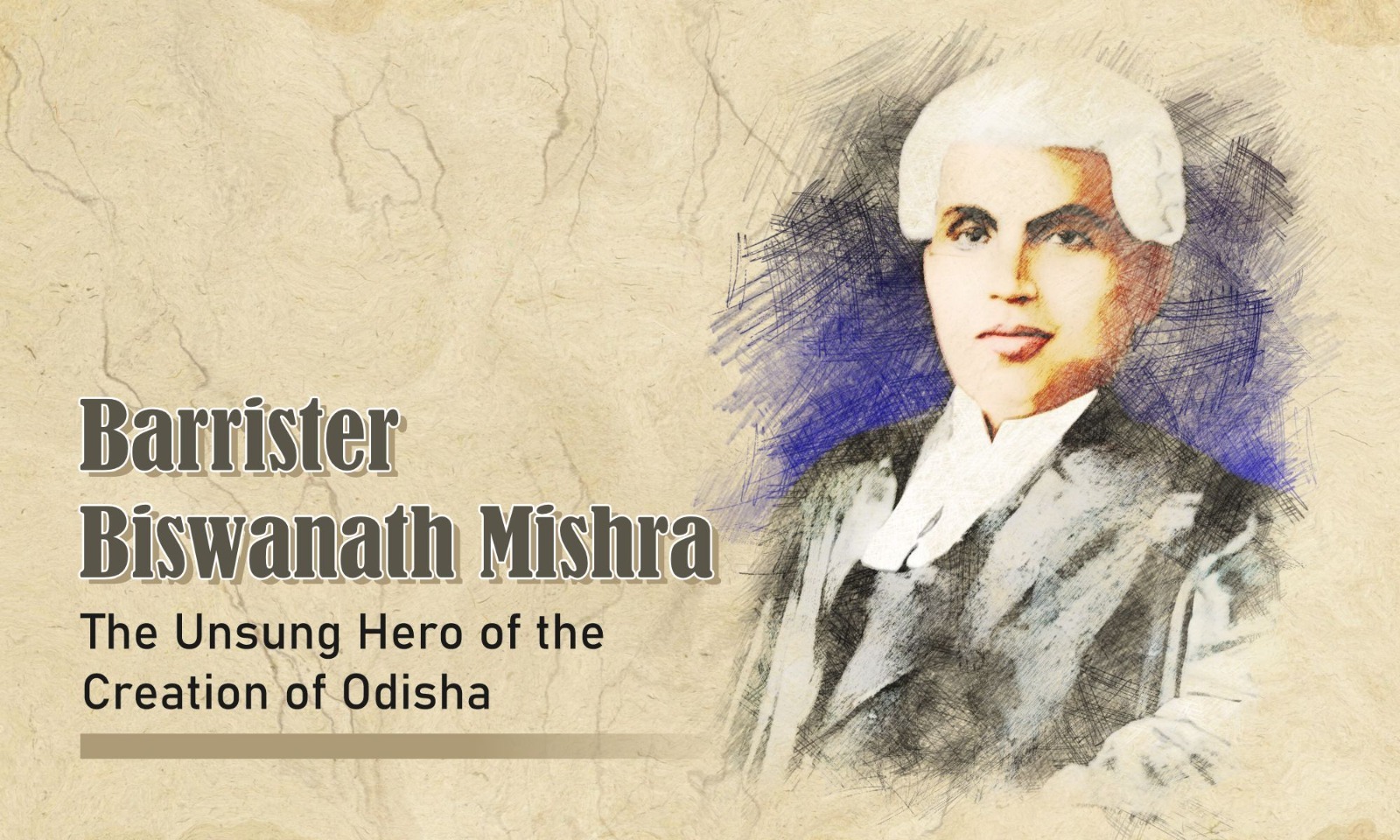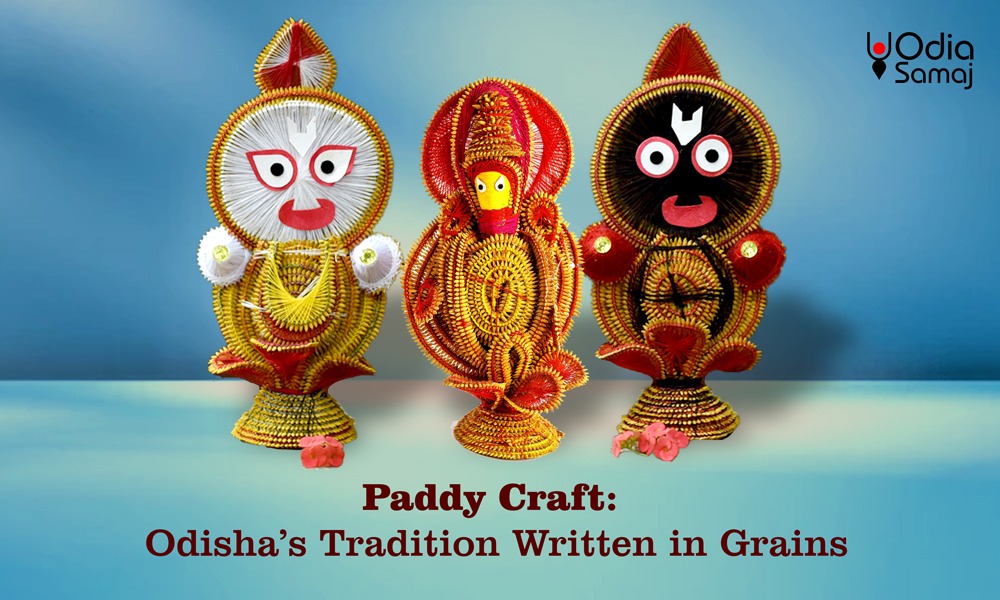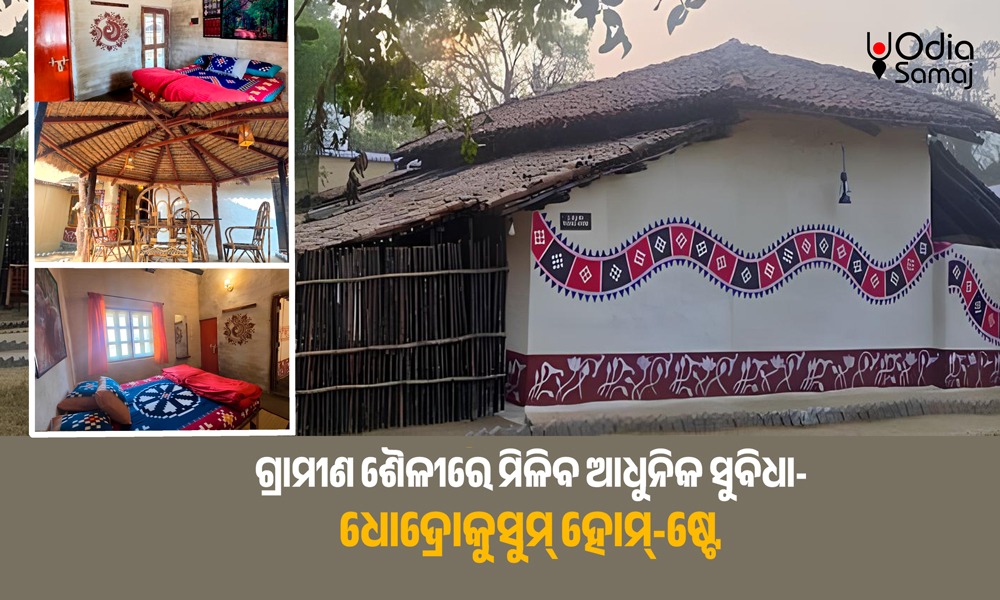Barrister Biswanath Mishra The Forgotten Pioneer of the Oriya Movement

In the history of Odisha’s cultural and
linguistic unification, some names echo louder than others. Yet, among the
constellation of stalwarts who laid the foundation of modern Odisha, Barrister
Biswanath Mishra remains an unsung hero—despite his towering contributions. A
pioneer of the Oriya movement, a liberal social reformer, and the first
Barrister from Odisha with credentials from England, Biswanath Babu, as he was
fondly called, embodied resilience, intellect, and patriotic commitment.
From Poverty to Prestige: The Early Years
Born into a poor Brahmin family in
Someswarpur, Biswanath Mishra's journey began amidst social taboos and
financial hardships. His father, Kulamani Mishra, was a priest with meagre
means, yet he supported his son’s dreams in defiance of prevailing conservative
norms. Pursuing English education at a time when it was considered socially
defiling, was an act of rebellion. Despite social boycotts and financial constraints,
Biswanath completed his schooling at Puri Zilla School, earned a scholarship,
and later joined Ravenshaw College for his F.A. studies.
His time at Ravenshaw marked a turning point—not just in academics but in awakening his Oriya consciousness. Deeply inspired by Utkal Gaurav Madhusudan Das, Biswanath became an active volunteer at the 1903 Utkal Sammilani Conference, marking the start of a lifelong association with the movement for a unified Odisha.
A Barrister with a Mission
Driven by the desire to serve the Oriya
cause more effectively, Biswanath left for England in 1910, becoming the first
qualified Barrister from Odisha. Upon his return in 1912, he began practice at
the Calcutta High Court—then the legal epicentre for Bengal, Bihar, and Odisha.
But law was not his ultimate calling. He used his legal platform to advocate
for the unification of Oriya-speaking regions scattered across Madras, Bengal,
Bihar, and the Central Provinces.
Even before qualifying as a barrister, he had served as a teacher at Russelkonda (Bhanjanagar) in 1904, where he first-hand experienced the neglect and marginalisation of Oriya language and culture under the Madras Presidency. That exposure deeply influenced his belief in a linguistically united Odisha.
Championing the Oriya Cause
From Aska in Ganjam, where he began
legal practice, Biswanath spearheaded the Oriya movement with leaders like
Harihar Panda and Madhusudan Panigrahi. He advocated for:
·
The use of Oriya in
courts
·
The establishment of
scholarships for students
·
And, most importantly,
the inclusion of Oriya-speaking tracts in a unified Odisha.
His activism intensified in 1912 when the Government of India rejected the inclusion of Oriya-speaking regions from Madras Presidency into the Bihar-Odisha province. Biswanath led a massive protest in Berhampur, attended by thousands—an early show of mass mobilisation in Ganjam.
Legislator and Statesman
Twice
elected to the Central Legislative Assembly (in 1922 and again in 1930),
Biswanath used the forum not to further personal gain but to press for Odisha’s
rightful place in the Indian administrative structure. He openly criticised
British policy—whether on salt tax, wasteful expenditure, or their empty
promises.
In 1924, he worked closely with the Philip-Duff Commission, which concluded that Oriya-speaking people under Madras Presidency overwhelmingly favoured amalgamation with Odisha. This was a milestone that strengthened the legitimacy of Odisha’s demand.
He relentlessly questioned the government on its delay in forming a separate province despite multiple promises, including those made by the Simon Commission, which he controversially welcomed in Patna in 1928. While the rest of India boycotted the commission, Biswanath and his colleagues submitted memoranda focusing solely on Odisha’s provincial status—drawing criticism but also yielding results.
Biswanath became a major force in Major Attlee’s committee to tour and locate the Oriya speaking tracts in Madras province.
Mr. Orissa: Beyond Politics
What earned him the sobriquet “Mr
Orissa” was not just his political vision, but his entire way of life. Despite
a twelve-year-long social boycott by orthodox elements for his voyage to
England, he bore no malice. He lived simply, remained deeply rooted in Oriya culture,
and advocated progressive values—including the participation of women in public
life. He was among the first to take his wife to a public conference—Utkal Union
Conference of 1917 held at Idga field of Cuttack—challenging regressive norms
of the day.
He declined all titles during his lifetime, even humbly resisting the conferment of “Utkal Ratna,” arguing that such honours should be awarded posthumously to avoid ego inflation.
A Legacy That Lives On
Biswanath’s tireless efforts laid the
groundwork for Odisha becoming a separate province on April 1, 1936.
Tragically, he did not live to witness the fruition of his dream. He passed
away in a massive cardiac arrest on Sept 19th, 1933. But even in his
absence, his role as a statesman, legal luminary, and social reformer was
foundational to the making of modern Odisha.
He was not a freedom fighter in the traditional sense. He believed in constitutional methods—petition, advocacy, memoranda, and public opinion. Yet, in spirit, he was a fighter against injustice, marginalisation, and cultural suppression.
Conclusion: Remembering a Forgotten Hero
Today, Barrister Biswanath Mishra
remains largely absent from mainstream historical narratives. Yet, his life
teaches us that patriotism isn't always defined by protest marches or jail
sentences—it can also mean quiet, persistent work in courts, assemblies, and
classrooms to uplift a community. His legacy demands remembrance—not merely as
a footnote, but as a cornerstone of Odisha’s identity.
In remembering him, we honour not just a man, but an idea—of dignity, unity, and cultural pride. Let us not forget our “Mr Orissa.” For in forgetting him, we risk forgetting a part of ourselves.





